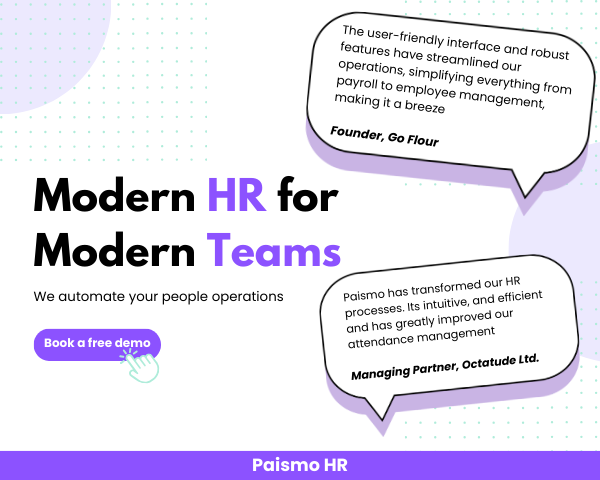What is an Absenteeism Policy?
An absenteeism policy is a formal set of workplace guidelines that outlines how organizations handle employee absences, tardiness, and time-off requests. Its primary goal is to minimize unplanned absenteeism, ensure clear communication, and promote workplace accountability.
This policy typically defines acceptable reasons for missing work, such as illness, injury, or personal leave, and lays out consequences for excessive or unauthorized absences. By establishing structure, an absenteeism policy helps protect productivity, support employees, and maintain legal compliance.
What Should an Absenteeism Policy Include?
A well-crafted absenteeism policy balances employee flexibility with business continuity. It should include:
Policy Purpose
Clearly state the reason for the policy: to maintain team productivity, ensure fairness, and support overall organizational goals. This helps gain employee buy-in and underscores the importance of consistent attendance.
Definitions & Key Terms
Explain what counts as:
- Excused absence (e.g., sick leave with documentation)
- Unexcused absence (e.g., no-show without notice)
- Tardiness or early departure
Legal Compliance
Reference applicable employment laws, including:
- FMLA (Family and Medical Leave Act)
- FLSA (Fair Labor Standards Act)
- Jury duty or military leave requirements
Clarify how these laws apply to exempt vs. non-exempt employees.
Reporting & Notification Procedures
Outline exactly how and when employees must report absences. Include:
- Whom to contact (e.g., direct manager or HR)
- Preferred method (email, phone call, HR platform)
- Deadlines for notice (e.g., one hour before shift)
Define the process for requesting scheduled leave vs. reporting emergency absences.
Documentation Requirements
List the types of documents needed to support an absence, such as:
- Doctor’s note
- Court notice
- Bereavement documentation
If digital tools (e.g., HR software or apps) are used to submit leave, include instructions.
Disciplinary Action
Detail the consequences of violating the policy, such as:
- Verbal or written warnings
- HR meetings or performance reviews
- Suspension or termination for ongoing violations
Ensure all disciplinary measures comply with local labor laws and are applied consistently.
Why Is an Absenteeism Policy Important?
A clear absenteeism policy helps your business:
- Maintain productivity by planning for coverage gaps
- Detect patterns of disengagement or burnout among employees
- Support employee well-being while preventing misuse of leave
- Ensure compliance during audits or legal disputes
- Promote fairness and transparency across departments
It also helps identify whether frequent absences are tied to personal challenges, job dissatisfaction, or workplace issues, enabling more proactive HR support.
How Can a PTO Policy Reduce Absenteeism?
A generous and well-structured Paid Time Off (PTO) policy can reduce unplanned absences by encouraging employees to take time off responsibly.
Key elements of an effective PTO policy
- Accrual rules: Define how time off is earned (monthly, annually, etc.)
- Time bank structure: Decide whether you’ll separate vacation, sick, and personal days or combine them into a single pool.
- Usage guidelines: Set clear expectations for when and how PTO can be used, and what constitutes abuse.
- Carryover and expiration: Clarify whether unused days roll over or expire.
Consider recognizing excellent attendance with incentives or rewards, which reinforces a culture of reliability without penalizing legitimate time off.
Supervisor Training & Communication
Train managers and supervisors to:
- Apply the policy consistently across teams
- Recognize signs of burnout or disengagement
- Handle no-call/no-show situations with empathy and compliance in mind
Finally, communicate your absenteeism and PTO policies clearly to employees, both in writing and during onboarding. Invite questions and offer ongoing HR support to ensure alignment and trust.
Become a part of the Paismo community
Paismo is an HR software that can help simplify your HR operations. In today's dynamic economic environment, efficient HR and automated payroll management are no longer a luxury but a necessity. Paismo is a comprehensive solution that transforms traditional HR complexes into streamlined and automated workflows. Paismo and its paired biometric device integration can be used for your business to mark employee attendance and record their timesheets accurately.
Paismo simplifies your tasks with its core HRMS, timesheets, and attendance management, as well as biometric attendance, payroll automation, and leave management system.
Take the first step toward modernizing your HR and payroll processes and explore what Paismo can do for you. Book a demo with our sales team.








